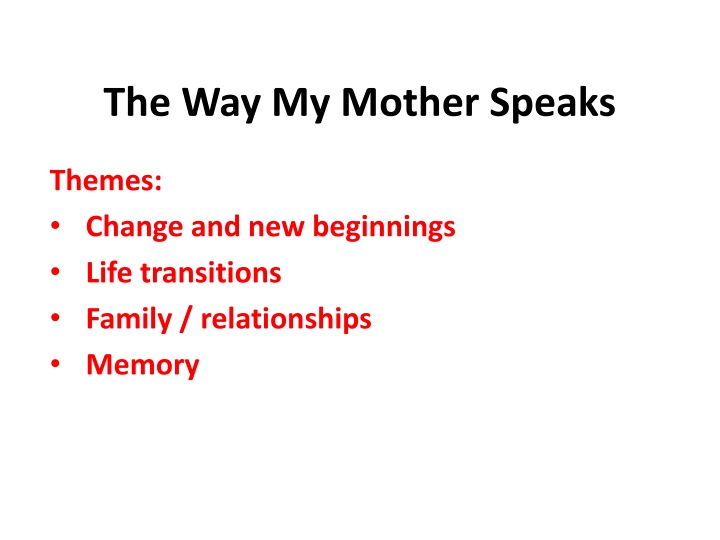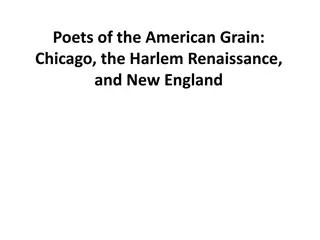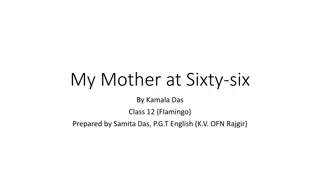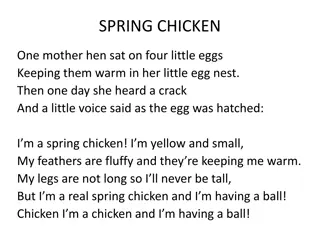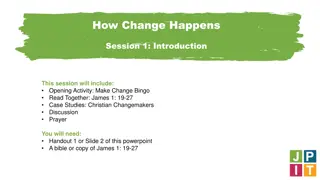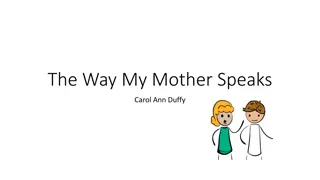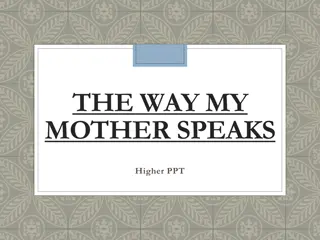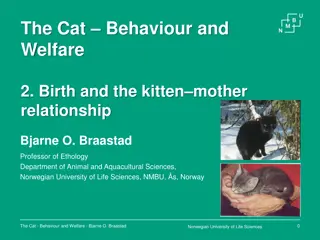Reflections on Change and New Beginnings in "The Way My Mother Speaks
The poem "The Way My Mother Speaks" delves into themes of change, new beginnings, and life transitions as the narrator reflects on her journey from Scotland to England. Through her mother's familiar phrases, the narrator grapples with mixed emotions of leaving home, embracing adulthood, and holding onto her Scottish identity. The use of literary devices such as repetition, assonance, and imagery highlights the complexity of the narrator's feelings as she navigates memories, family relationships, and the uncertainties of the future.
Download Presentation

Please find below an Image/Link to download the presentation.
The content on the website is provided AS IS for your information and personal use only. It may not be sold, licensed, or shared on other websites without obtaining consent from the author.If you encounter any issues during the download, it is possible that the publisher has removed the file from their server.
You are allowed to download the files provided on this website for personal or commercial use, subject to the condition that they are used lawfully. All files are the property of their respective owners.
The content on the website is provided AS IS for your information and personal use only. It may not be sold, licensed, or shared on other websites without obtaining consent from the author.
E N D
Presentation Transcript
The Way My Mother Speaks Themes: Change and new beginnings Life transitions Family / relationships Memory
The Way My Mother Speaks My Mother - Duffy s mum, she s Scottish. Written in first person stance, Duffy herself.
She is repeating things her mum would say to calm herself as she travels from Scotland to England to start a new life Her mum s well-used sayings I say her phrases to myself in my head or under the shallows of my breath, restful shapes moving. The day and ever. The day and ever. Private thoughts. Contemplative tone. Not sharing with anyone else Quiet breathing but also a symptom of anxiety. The train seems calm, comfortable, gentle. Also suggests how soothing mum s voice is. Shapes also creates confusion - we wonder what is going on. Repetition is almost lyrical, mimicking the movement of the train. Speaker is trying to remember her mum s voice, her unique phrases. She is trying to hold on to her identity. Italics are used to highlight its her mum s speech
Transferred epithet; the train is slow, not the evening The train this slow evening Assonance: broad vowels slow reading down, echoing the slow journey as she goes away from home. goes down England Word choice she s looking for the right thing/place browsing for the right sky, too blue swapped for a cool grey. She s moving from blue to grey childhood to adulthood For miles I have been saying Scots: what is it like then? What like is it. Assonance highlights more contradiction and confusion in the persona s feelings. Blue skies = happiness, grey = misery. Maybe she s uneasy about the way ahead. The way I say things when I think. Nothing is silent. Nothing is not silent. More contradictions. Double negative reflects her confusion, she s doesn t know she thinks to her leaving home. Mixed feelings. What like is it. Repetition emphasises the writer s fascination with her mum s expressions. A literal and metaphorical long time
This is a one offthe only time she will feel this, maybe even have this journey. Only tonight Mixed emotions. Paradox. The narrator cannot be happy and sad yet she is grateful of her mum s support. She s becoming independent, grown up and leaving home, and excited for her independent life. I am happy and sad like a child Imagery end of childhood nostalgic (looking back) who stood at the end of summer Metaphor compares growing up to children searching ponds for wildlife, suggesting anticipation for the unknown. and dipped a net in a green, erotic pond. The day Transferred epithet erotic is given to the pond when it s actually her impending adulthood. Green water is murky/can t see (future is unknown) Green na ve. Erotic awakening to a more sensual/sexual word. and ever. The day and ever. Enjambment I am homesick, free, in love with the way my mother speaks. Repetition, mirrors the journey still in progress. Reminds her of her Scottish identity. homesick/free contrasting word choice/list. homesick reflects back/ free looks forward. She is unrestricted, has opportunities and it s refreshing.
Tender tone. In love suggests an affirmation of her love for her mum. The final line repeats the title and concludes the message: she is fond and nostalgic for her mum s voice. There will always be a connection between Duffy and her mum.
